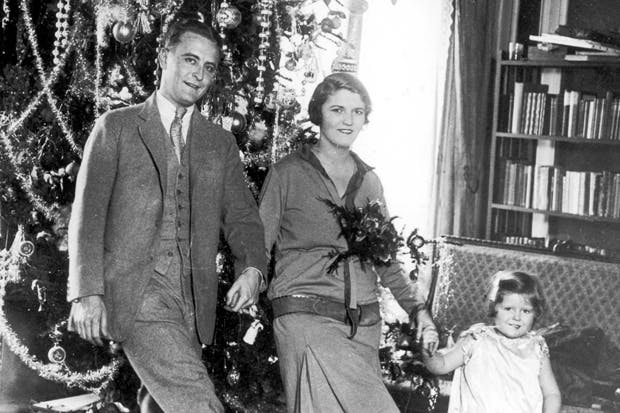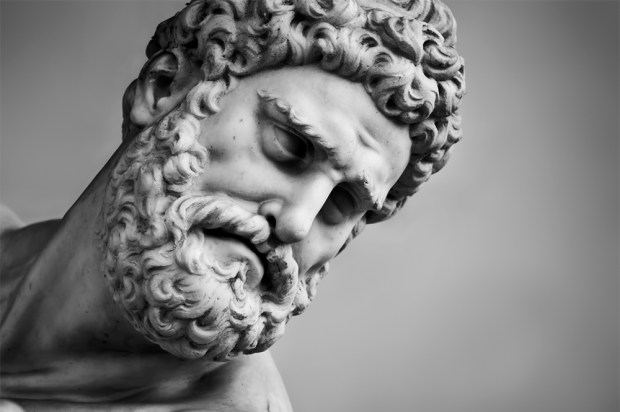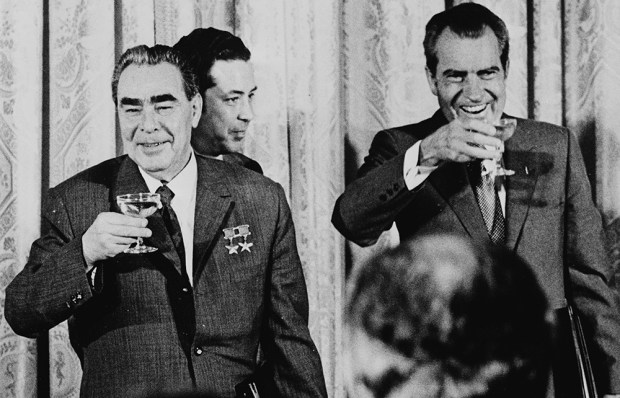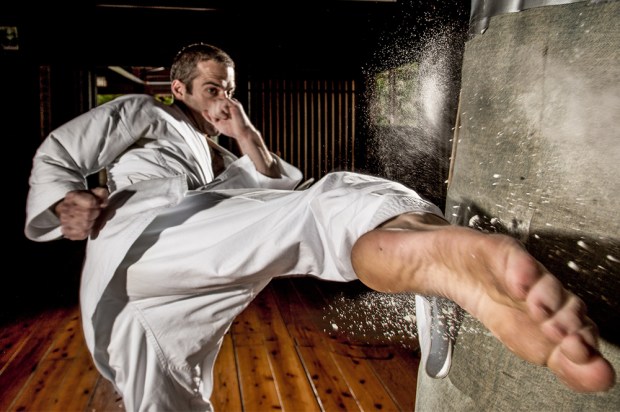An operation on my hand after a karate injury has had me reading more than usual. I even attempted Don DeLillo’s Underworld, but soon gave up. Truman Capote famously said that On the Road was typing, not writing, but old Jack Kerouac was Jane Austen compared with some contemporary novelists. Making it sound easy is the hardest thing in writing, and today’s modernists sure make it look easier than easy. But they’re also sloppy, self-indulgent and at times incomprehensible.
What I don’t get is how one can enjoy a novel when the plot is not clear. When the reader doesn’t know what’s real and what’s imagined, it’s time to regress and look up Papa and Scott and Graham and Jane. (Austen’s preoccupation with property, income and class still resonates in today’s world. The sainted editor had to write a letter so that I could get into a building in the Bagel. By invoking all three of Jane’s preoccupations, I got in.) Avoiding dullness is what great writers do, and amusing sinners are always better than pious dullards. Brio is what keeps a novel going, at least for little old me, and long-windedness has me reaching for the remote and a soap opera.
Speaking of writers, Saul Bellow has been in the news lately because of a massive biography by Zachary Leader, brilliantly reviewed in The Spectator and by every newspaper and magazine on these shores. I am not a Bellow fan — too much information, as they say nowadays. The astute Norman Mailer described Bellow as ‘a hostess of the intellectual canapé table’. I know exactly what he meant by that. It was an accurate assessment of Saul, as well as a kick in the balls. Bellow was a very Jewish writer, but unlike Philip Roth, of whom I’m a fan, he is a revenge novelist, out to settle scores. His close buddy was Jack Ludwig, a fellow professor at Bard, a hothouse of radicalism, and obviously a gentleman of the old school! Ludwig was once asked if he knew Bellow, and he answered, ‘Do I know Saul Bellow? Hell, I’m fucking his wife!’ He was doing just that, and Saul gave it to him in his fiction. Mind you, Hemingway did the same when it came to some of the characters he knew in Paris during the Twenties — Harold Loeb was Robert Cohn and Lady Duff was Lady Brett, and so on. But Papa’s characters were more inspired by than copies of the real thing.
Fitzgerald was famously obsessed with the mysteries of great wealth, but back then wealth was something new among Americans. Poor old Scott wrote more about the ruinous effects of wealth, which is a very large theme even today. I recently read a couple of articles on Fitzgerald, one claiming that he wrote Gatsby in Great Neck, Long Island, where the action takes place, the other that he wrote the greatest of American novels in Antibes. I believe both writers are correct. Fitzgerald started the novel in Long Island and finished it in Antibes. Detective Taki solves the riddle in one short declarative sentence.
Scott and Zelda’s two granddaughters, their mother being Scottie, the couple’s only issue, are very much with us and recently visited Juan-les-Pins and the hotel that was once the home of their grandparents. The cruel irony is that Scott died broke and forgotten, and his granddaughters are very rich because of his immortal work.
Although The Great Gatsby is considered Scott’s greatest work, the greatest literary critic of our time, Taki, thinks otherwise. He gives the nod to Tender Is the Night. When Fitzgerald showed Papa the manuscript of Gatsby, Hemingway did not brood, he sprang into action. He came up with The Sun Also Rises, not a bad response. It was almost America versus Europe. Great stuff. Which brings me to Hollywood. The best that degenerate place has managed in filming either writer’s works was — in my not so humble opinion — The Short Happy Life of Francis Macomber, Papa’s short story about grace under pressure. It’s an African safari story set at a time when guns did not shoot animals from the safety of Range Rovers. Every other film of works by these two great American writers has been a disaster, although the 1957 version of The Sun gave it the old college try. Tyrone Power as Jake Barnes, a man who had lost his manhood in the war, was perfect casting, as was Ava Gardner as Lady Brett, but Zanuck’s casting of the greasy New Yorker Bob Evans as the bullfighter had the audience laughing rather than crying when he got gored. The Snows of Kilimanjaro, with Gregory Peck as the writer dying of gangrene in Africa, was also a good attempt, as was The Last Time I SawParis, the title given to the film based on ‘Babylon Revisited’, Scott’s greatest short story.
I could go on, but I’ve said all this before. I read somewhere that Gatsby sells half a million copies every year. If that’s correct, how can the crap that’s published every year be out there? How can bad television, with its saccharine, smug, self-adoring morons and their fake laughter, be allowed to assault our senses daily. How can American student athletes graduate from universities and be unable to write or read? Papa and Scott are very easy to read and understand. Maybe it’s because they’re given postmodern writers in class. Even a great literary critic such as Taki would be illiterate if he had had to go through that torture as a young man.
Got something to add? Join the discussion and comment below.
Get 10 issues for just $10
Subscribe to The Spectator Australia today for the next 10 magazine issues, plus full online access, for just $10.















Comments
Don't miss out
Join the conversation with other Spectator Australia readers. Subscribe to leave a comment.
SUBSCRIBEAlready a subscriber? Log in